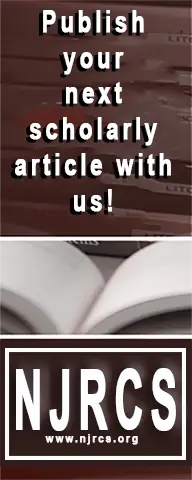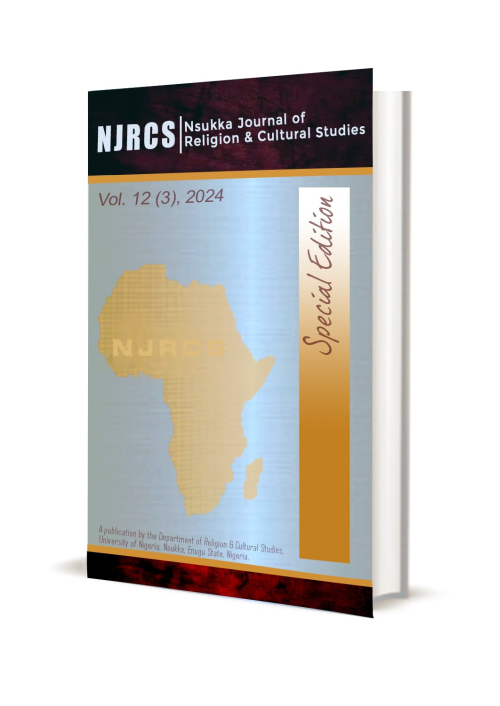Policies
The NJRCS’s Editorial Board and Publisher are entrusted with the crucial responsibility of upholding the integrity and completeness of the scholarly record within their content for all users. Once an article has been published online, alterations can only be made under specific circumstances.
The policy of the NJRCS Editorial Board and Publisher places significant emphasis on maintaining the authority of articles post-publication, aligning with the best practices observed in the academic publishing realm.
Author’s Grant of Permission
When an author submits an article to NJRCS, they grant permission to the publisher to publish and utilize their content. This includes displaying, storing, copying, and reusing the material for various purposes related to the journal’s publication objectives.
Copyright Disclosure
Authors of articles published in the Nsukka Journal of Religion and Cultural Studies (NJRCS) typically retain their copyright, unless otherwise specified. This means that authors have the right to distribute and archive their work. However, there are exceptions to this right. Third-party materials such as photographs or other content owned by the publisher or other copyright holders may not fall under the authors’ copyright. In such cases, authors may need to seek permission from the relevant copyright holders before distributing or archiving these materials. Additionally, authors must provide proper citations to the original work when sharing or archiving their articles.
Licensing Agreement
The policy regarding the publication of articles in the Nsukka Journal of Religion and Cultural Studies (NJRCS) is to make them available as open access under the Creative Commons CC-BY license, with the current version being CC-BY, version 4.0. Under this licensing agreement, authors retain the copyright to their work while allowing readers to download, distribute, and adapt the content for both commercial and non-commercial purposes, provided that proper attribution is given to the original author.
Creative Commons Attribution License
The CC-BY Creative Commons attribution license ensures that any individual can freely use the published material as long as they appropriately credit the author(s) and acknowledge NJRCS as the original source of publication.
When third-party materials feature a copyright notice aimed at safeguarding against unauthorized duplication, they fall outside the scope of the CC-BY Creative Commons attribution license. In such instances, Authors must respect any copyright notifications linked to these third-party materials, unless
Data Archiving and Preservation
The Nsukka Journal of Religion and Cultural Studies (NJRCS) is committed to preserving all the NJRCS published work online. Therefore, adequate measures have been put in place to ensure long-term preservation and accessibility to all published work in NJRCS. All NJRCS published work are currently preserved in several databases such as Zenodo and Internet Archive. Zenodo archives deposited content for future use in CERN’s Data Centre.
Archival versions of the content are maintained and can be accessed anytimes and anywhere. A secure server, which is frequently backed up, is used to store all content. Should there be a problem with the NJRCS website, the backup will be restored in less than 24 hours. The print versions of NJRCS are stored in the Faculty of Social Sciences’ section at the Nnamdi Azikiwe Library, University of Nigeria Nsukka.
Downloading and Distributing of Material
Any action involving copying, downloading, transmitting, or distributing Content is contingent upon the acknowledgment of any copyright notice. The copyright information must be explicitly revealed and cannot be altered, removed, or concealed either wholly or partially. Certain content may incorporate data, tables, or excerpts from external sources for which NJRCS lacks the copyright or re-licensing rights. To ascertain whether the material can be reused, the author(s) are advised to reach out to the original copyright holder (typically the initial publisher or author). It is incumbent upon the author(s) to secure all requisite permissions for copyright release before incorporating any copyrighted material into their manuscript.
Retraction Policy
In the Nsukka Journal of Religion and Cultural Studies (NJRCS), contributing authors can decide to publish a retraction if they discover a significant error in their research paper. The Editor-in-Chief or the publisher of NJRCS can also initiate a retraction process on a published work if a major error is identified based on the COPE Guidelines for Retracting Articles and other ethical recommendations.


